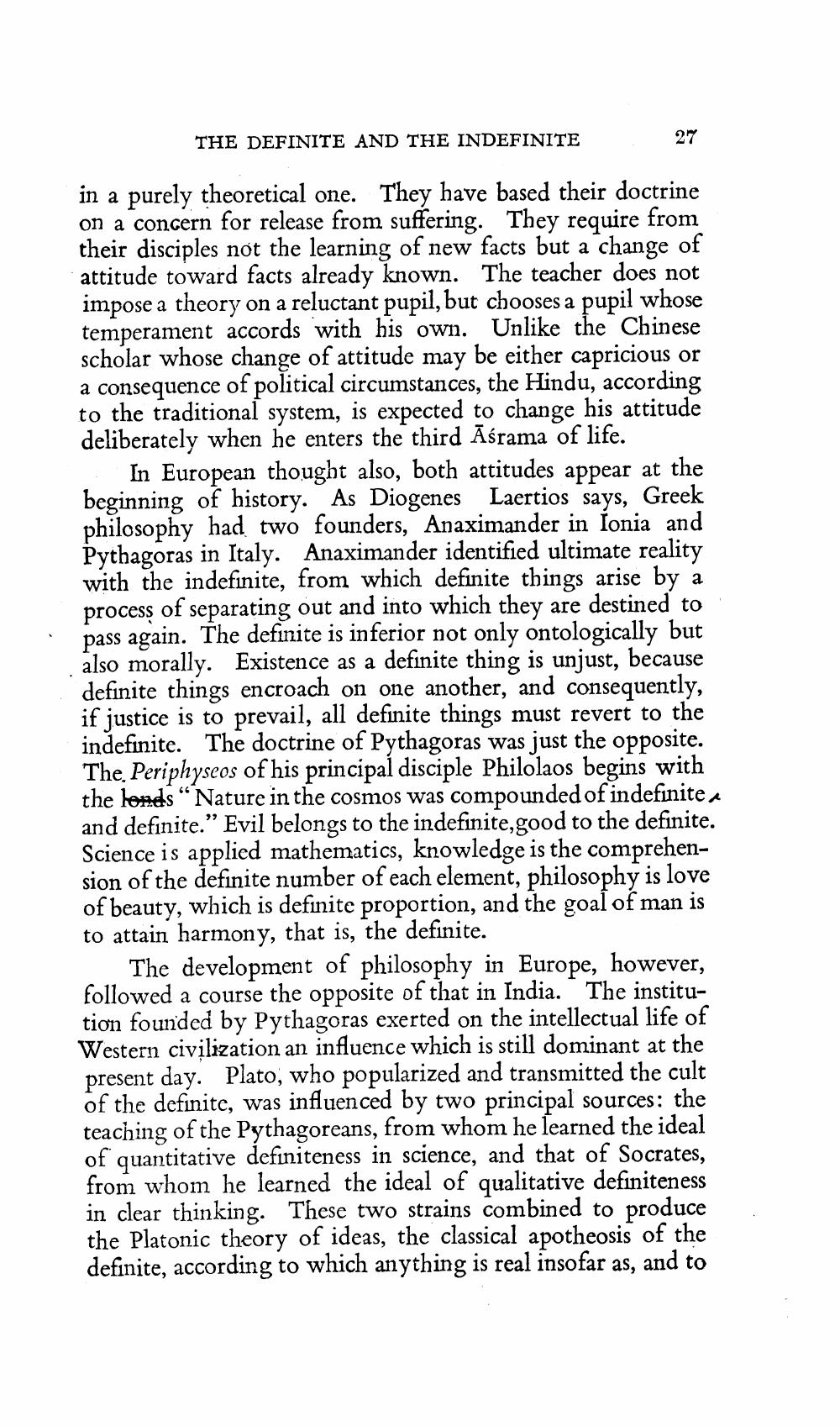Book Title: Definite And Indefinite Author(s): George Burch Publisher: George Burch View full book textPage 3
________________ THE DEFINITE AND THE INDEFINITE 27 in a purely theoretical one. They have based their doctrine on a concern for release from suffering. They require from their disciples not the learning of new facts but a change of attitude toward facts already known. The teacher does not impose a theory on a reluctant pupil, but chooses a pupil whose temperament accords with his own. Unlike the Chinese scholar whose change of attitude may be either capricious or a consequence of political circumstances, the Hindu, according to the traditional system, is expected to change his attitude deliberately when he enters the third Aśrama of life. In European thought also, both attitudes appear at the beginning of history. As Diogenes Laertios says, Greek philosophy had two founders, Anaximander in sonia and Pythagoras in Italy. Anaximander identified ultimate reality with the indefinite, from which definite things arise by a process of separating out and into which they are destined to pass again. The definite is inferior not only ontologically but also morally. Existence as a definite thing is unjust, because definite things encroach on one another, and consequently, if justice is to prevail, all definite things must revert to the indefinite. The doctrine of Pythagoras was just the opposite. The Periphyseos of his principal disciple Philolaos begins with the londs "Nature in the cosmos was compounded of indefinite a and definite.” Evil belongs to the indefinite,good to the definite. Science is applied mathematics, knowledge is the comprehension of the definite number of each element, philosophy is love of beauty, which is definite proportion, and the goal of man is to attain harmony, that is, the definite. The development of philosophy in Europe, however, followed a course the opposite of that in India. The institution founded by Pythagoras exerted on the intellectual life of Western civilization an influence which is still dominant at the present day. Plato, who popularized and transmitted the cult of the definite, was influenced by two principal sources: the teaching of the Pythagoreans, from whom he learned the ideal of quantitative definiteness in science, and that of Socrates, from whom he learned the ideal of qualitative definiteness in clear thinking. These two strains combined to produce the Platonic theory of ideas, the classical apotheosis of the definite, according to which anything is real insofar as, and toPage Navigation
1 2 3 4 5 6 7 8 9 10 11 12
